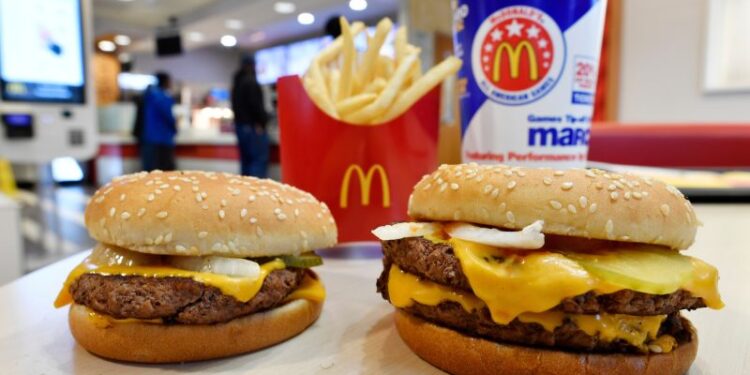
(NewsNation) — As Americans’ concerns grow about how their food is made and processed, many are questioning why banned chemicals are still allowed in the country’s food supply.
The Senate voted Thursday to confirm Robert F. Kennedy Jr.’s nomination as Health and Human Services secretary, a role that oversees the United States’ vaccine policies, health insurance and food safety.
Critics have been vocal about food additives and ingredients linked to negative side effects, including causing cancer in lab animals, and have questioned the U.S. Department of Agriculture and the Food and Drug Administration’s regulations on processed foods.
FDA slow to remove banned additives
So, why are harmful chemicals still allowed in foods, despite existing regulations?
Darin Detwiler, an adviser to the FDA and the USDA, said the FDA’s oversight processes are clunky and outdated, with regulatory bodies often swayed by food lobbyists. He said public health is threatened by delayed action.
“We also can’t wait on some of these things anymore when it’s a threat to public health. Every week, every month, every year — in some cases, every decade — we delay in this, we just literally see the number of people’s lives that are forever impacted by these. In some cases, lives that are ruined or ended prematurely because of failures in terms of food safety decisions,” he said.
Last month, the FDA banned red dye No. 3 in foods and medicines, citing the 1958 Delaney Clause, which prohibits any food additive shown to cause cancer in animals.
However, Detwiler said, many chemical food additives were approved before the clause was issued and before new concerns about cancer emerged, leaving those additives “grandfathered in” without being reevaluated.
Kennedy: US needs better research
Kennedy has emphasized the need for HHS to catch up with other developed nations. He has said that while the U.S. has 10,000 approved food ingredients, Europe only has 400.
Big American food companies often market healthier versions of their products overseas, often under the same names but with different ingredients. For example, McDonald’s fries have 11 ingredients in the U.S. but only three in Europe, and Fruit Loops cereal in the U.S. contains artificial food dyes, while the Canadian version uses natural fruit coloring.
“Understand the relationship between these different food additives and chronic disease, so that Americans understand it and make sure that Americans are aware,” Kennedy said during a Senate confirmation hearing. “But I don’t want to take food away from anybody. If you like a McDonald’s cheeseburger, a Diet Coke, which my boss loves, you should be able to get them.”
NewsNation contacted the FDA for a response and received an automatic message that said HHS has paused mass communication to allow for the “new team” to settle in.






